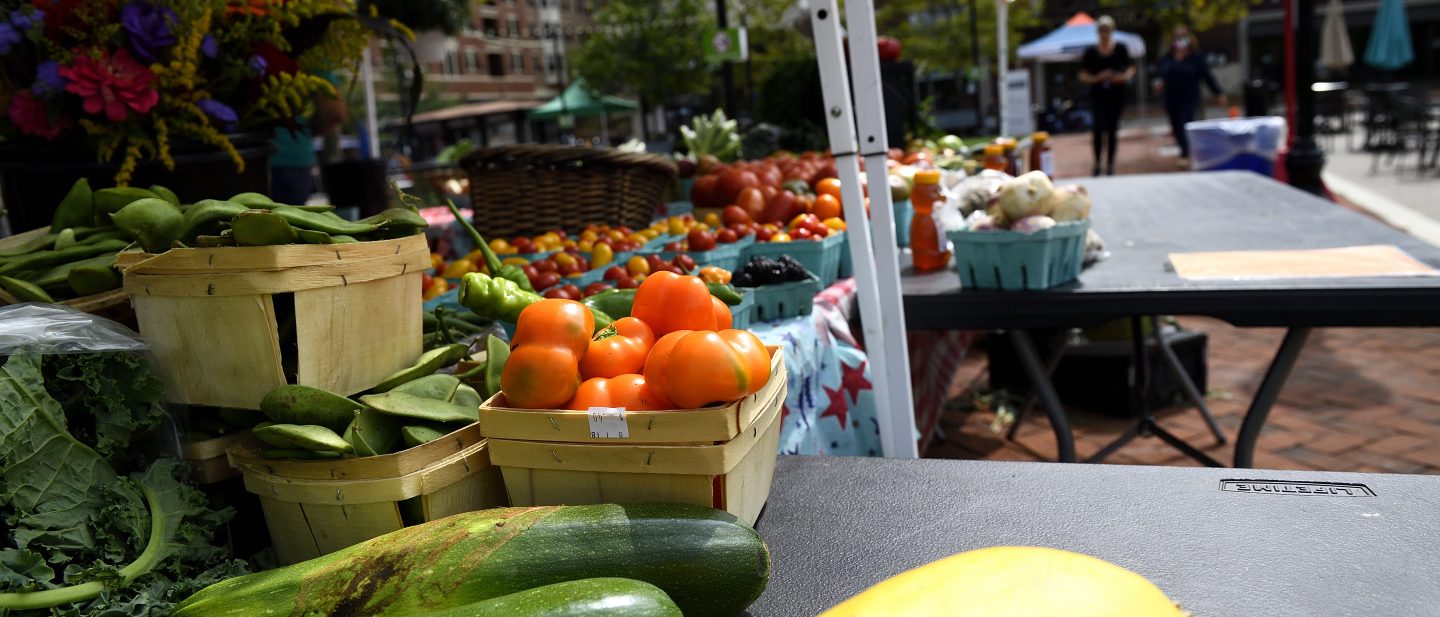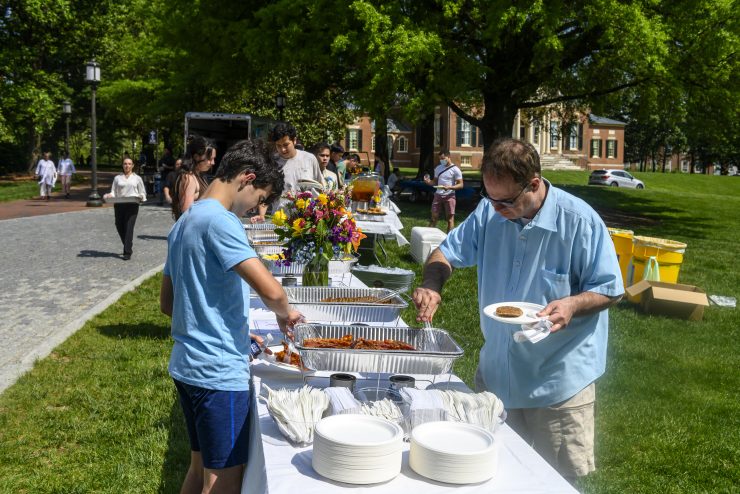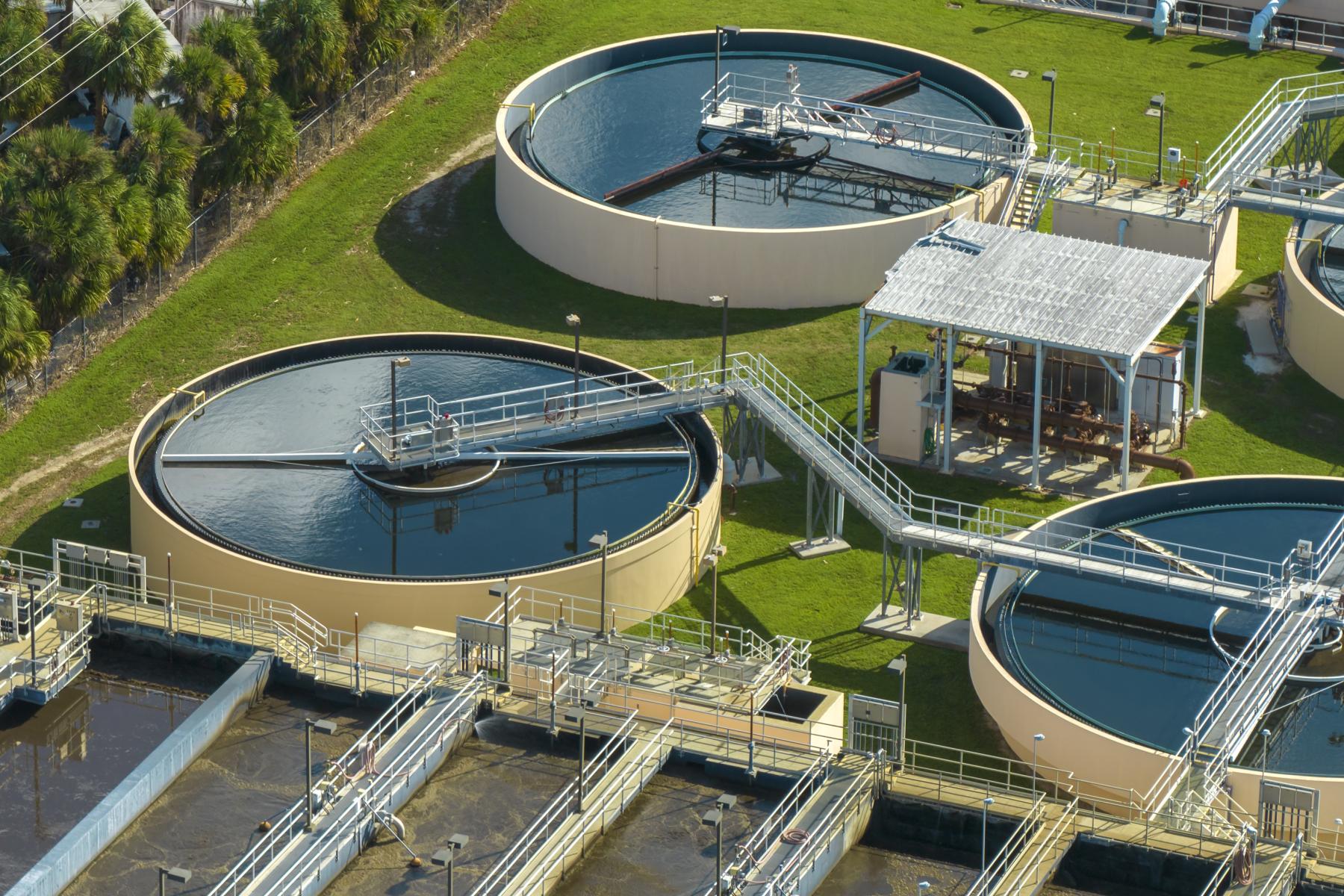
Reduce
The most impactful action JHU can take to minimize the environmental and public health consequences of our consumption is to reduce the waste we generate. The Office of Sustainability and partners are working collectively to shift our culture towards responsible consumption and setting new waste reduction goals as part of an overarching Sustainability Plan.
Food Waste Reduction
 Food waste accounts for 6% of global greenhouse gas emissions and makes up a significant portion of the waste sent to the incinerator in Baltimore City. In addition to reducing waste and increasing composting across the university, the Office of Sustainability is a member of the Baltimore Zero Waste Coalition Steering Committee with the Baltimore Office of Sustainability and the Baltimore City Department of Public Works. This working group convenes representatives from higher education institutions and community stakeholders to develop solutions and best practices to improve waste reduction and diversion across the Baltimore region.
Food waste accounts for 6% of global greenhouse gas emissions and makes up a significant portion of the waste sent to the incinerator in Baltimore City. In addition to reducing waste and increasing composting across the university, the Office of Sustainability is a member of the Baltimore Zero Waste Coalition Steering Committee with the Baltimore Office of Sustainability and the Baltimore City Department of Public Works. This working group convenes representatives from higher education institutions and community stakeholders to develop solutions and best practices to improve waste reduction and diversion across the Baltimore region.
Sign up for Free Food Alerts!
Johns Hopkins is the founding member of the Free Food Alert— an innovative platform established by three JHU students in 2017 to reduce food waste from campus events. Recently redeveloped, this platform provides a mobile alert system for notifying JHU community members of excess event food. Subscribe to send and receive Free Food Alerts below!
Reuse
All products have impacts on environmental and human health throughout their lifecycle, from extraction through end of life. The Office of Sustainability encourages the university to reuse items to their fullest potential and prioritize the purchase of high-quality, durable goods over single-use products whenever possible.
Hop Reuse Hub
The Hop Reuse Hub is a surplus furniture program established in 2013 to reduce waste by encouraging the use of quality, secondhand furniture previously owned by JHU departments. The program plays an important role in JHU’s reuse initiatives and helps save the university money by allowing departments to avoid the purchase of new furniture. Since its inception, the program has avoided the disposal of over 400,000 lbs of furniture and donated $100,000 worth of items to local non-profits.
Did You Know?
All Homewood Campus cafés are committed to providing a discount to those who bring their own reusable cups and mugs! Find more sustainability tips on our Live Sustainably page.
Recycle & Compost
Diverting materials from incinerators and landfills is not only important from an environmental perspective, but due to the local health impacts of waste disposal, is a key action JHU must take to address environmental justice and reduce disproportionate harm to low-income, communities of color. Recycling and compost are available on all JHU campuses to make it as convenient as possible for students, faculty, staff, and visitors.
Despite disruptions to JHU’s operational processes as a result of the COVID-19 pandemic, JHU had a 32% waste diversion rate in 2021 and a 16% drop in total waste tonnage from 2020-2021.
Construction and Demolition Waste Management Policy

In 2021, Johns Hopkins Facilities and Real Estate implemented a Construction and Demolition Waste Management Policy to require tracking, recycling, and reuse guidelines to divert waste from university construction projects. Specifically, this policy sets a 75% recycling requirement for all projects pursuing 3rd party green certification and establishes protocols to collect and redistribute furniture and materials to other JHU projects, the Hop Reuse Hub, or for donation to local charities or outside vendors.

Recycling & Composting Guidelines
Help contribute to JHU’s waste reduction and diversion efforts by recycling and composting properly on campus.



